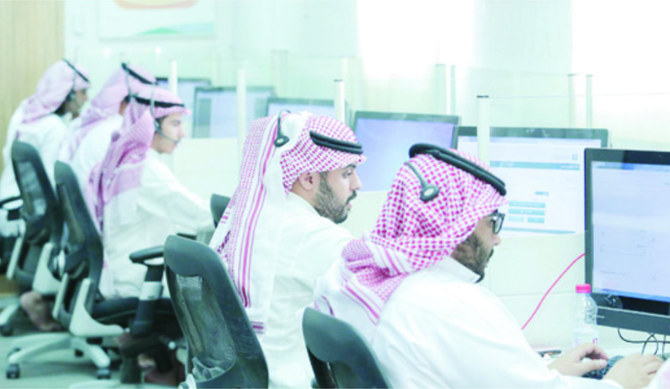RIYADH: Coping with working hours in Ramadan can be difficult for some employees, especially since this year’s regulations require employees to be present in the workplace, unlike during the past two years when employment was virtual due to the pandemic.
Lack of energy, sleep, coffee and food can affect the productivity of employees but Saudi Arabia has changed working hours in Ramadan to make it easier for people to practice fasting and cope with work.
Hashim Hafiz, project adviser, unlike many people, expressed excitement at working during Ramadan. “I actually like to work in Ramadan because it regulates my day since I must sleep early to wake early to go to work. However, the only disadvantage of working in Ramadan is not having my morning coffee that boosts my energy.”
The Kingdom’s new regulations changed working hours from eight hours to six hours during Ramadan.
Also, the Ministry of Human Resources and Social Development has decided to implement flexible working hours for its employees during Ramadan, becoming the first ministry in the government to enact this system. The ministry provided its employees with three options: The first was working from 9:30 a.m. to 2:30 p.m., the second was from 10:30 a.m. to 3:30 p.m., and the third was from 11:30 a.m. to 4:30 p.m.
FASTFACTS
Lack of energy, sleep, coffee and food can affect the productivity of employees but Saudi Arabia has changed working hours in Ramadan to make it easier for people to practice fasting and cope with work.
The new system of flexible working hours can assist to reduce traffic, especially during iftar time, and will help people to be more productive in the workplace.
“Flexible working hours is a new thing to us and I think it’s a smart system and I prefer to have it not only during Ramadan but even during the year. For example if, God forbid, something happened and you were late for work, you can compensate for it on the same day with no problem and this system will make it easier for people not to rush every morning and stop the streets to go to work,” said lawyer Hatoon Nabeel.
Shuaib Jameel, a creative director, said that you could stick to one routine in Ramadan and it was easier for someone to cope with it when you had a routine.
“During the blessed month of Ramadan, I have a routine that makes working hours easier. I have sahoor, sleep until 6:00 a.m. then wake up to go to work, I stay at work until 1:30 p.m., I go home, sleep until the afternoon, then I wake up to cook iftar.”
Another employee, Atif Felemban, said that working during Ramadan was easier than working during the year because other non-Muslim employees appreciated you more. “I work in a Chinese company, and during Ramadan everyone is more linear at work and they understand that we are all fasting, this is why they don’t give us heavy tasks.”
The new system of flexible working hours can assist to reduce traffic, especially during iftar time, and will help people to be more productive in the workplace.


























